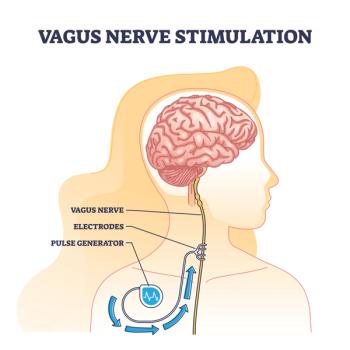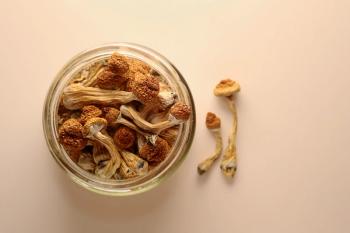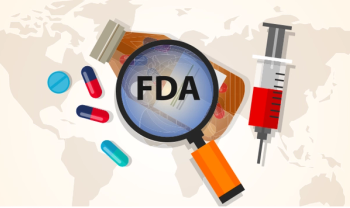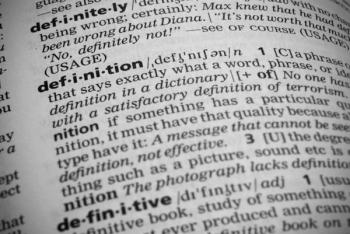
Noninvasive Brain Stimulation Showing Promise As a Treatment for MDD, TRD, Other Disorders
In contrast to electroconvulsive therapy, patients are not sedated during the treatments. Studies of a protocol called accelerated intermittent theta-burst stimulation have produced positive results.
Noninvasive brain stimulation using short bursts of high frequency magnetic pulses is gaining ground as a therapeutic option for patients with major depressive disorder (MDD) and treatment resistant depression (TRD).
But investigators emphasize much work remains to be done to establish optimal dosage and timing of treatments.
Theta-burst stimulation (TBS), a type of noninvasive brain stimulation, has a mild adverse effects profile and is administered while the patient is awake and not sedated. In that respect, it differs from electroconvulsive therapy (ECT), which involves passing an electric current through the brain of a sedated patient. ECT is generally reserved for severe MDD, bipolar disorder and schizophrenia after other treatments have not work.
Investigators and clinicians are finding better success rates with TBS when the magnetic pulses are delivered in high volume and at frequent intervals during the day, a treatment protocol known as accelerated intermittent TBS (aiTBS).
In a
“After five days of treatment, 50% of participants in the active aiTBS group experienced remission compared with none in the sham group. This finding indicated clinical efficacy and a short time to achieve improvement in this difficult-to-treat condition,” wrote lead author Yvette I. Sheline, M.D., and her co-investigators. Sheline is a professor of psychiatry and behavioral Research at the University of Pennsylvania's Perelman School of Medicine.
The rapidity with which aiTBS works is considered of great value to patients and clinicians because antidepressant medications may take weeks to show an effect, if at all, and fast intervention may be imperative for patients who have suicidal thoughts. Sheline and her co-authors noted, thought, that more trials are needed to determine if aiTBS has a lasting effect.
In a 2020
This treatment protocol, which has come to be known as Sanford neuromodulation therapy, or “SNT protocol,” is not easily applied because patients must be available for 5 full days to receive it and therefore SNT is more appropriate for inpatient settings. Insurance coverage for such an intensive course of therapy may not be available, wrote Cory R. Weissman, M.D., and Zafiris J. Daskalakis, M.D., Ph.D., in an
“It may be difficult for patients employed full time to lose an entire work week, especially given the limited evidence on the long-term durability of response with SNT,” they wrote. “It is therefore not yet clear who the optimal target patient is for this treatment.”
Separately, a
Newsletter
Get the latest industry news, event updates, and more from Managed healthcare Executive.























